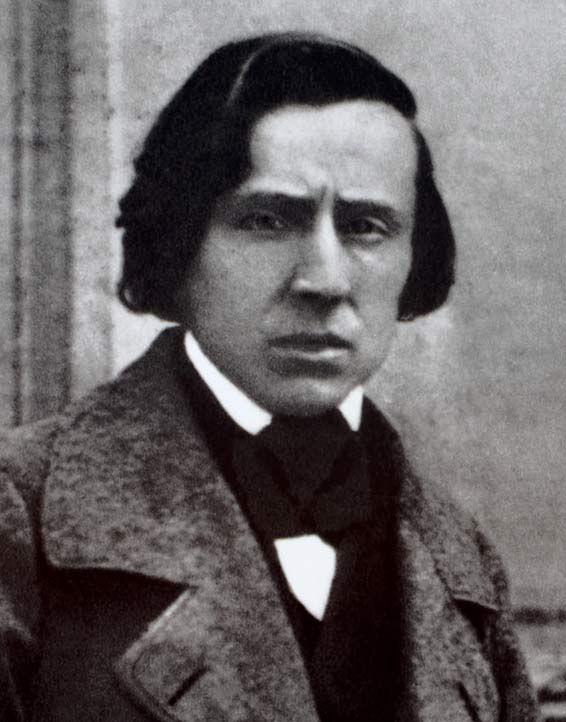Frédéric Chopin (1810-1849)
Unlike his contemporaries Liszt, Berlioz, Schumann, and Wagner, Chopin did not write for the press in any domain whatsoever, never indulging in taking position publicly, whether humanitarian, social, religious, or artistic. At most, he sometimes discreetly expressed a political or aesthetic opinion at salons or artists gatherings. Through his creations and improvisations, he expressed his patriotic feeling toward his homeland and regarding Poland’s dire situation. When Lenz wrote: “Chopin was the only political pianist: he played and staged Poland in music” in the aftermath of the Franco-Prussian War, he portrayed him as a bard in under the controversial rule of Louis-Philippe.
It seems likely that Chopin was not a keen reader: rather, he was read to and was surrounded by readers. Being highly sensitive, intelligent, and sagacious, as a teenager he found himself surrounded by Warsaw’s writers, poets, critics, and teachers who educated him and shaped his judgement. In the same way, he frequented Paris’s most brilliant minds of the Great Emigration, who revolved around Prince Adam Czartoryski, as well as personalities such as Balzac, Heine, Custine, Delacroix, and George Sand, who always read him the previous day’s drafts. Apart from the draft of a method for piano, of which only twelve pages remain, the corpus of Chopin’s writings exclusively concerns his private correspondence.
Jean-Jacques EIGELDINGER
25/02/2018
Trans. Oakley Kiefer

| firstname | Frédéric |
|---|---|
| lastname | Chopin |
| birth year | 1810 |
| death year | 1849 |
| same as | http://data.bnf.fr/13892469/frederic_chopin/ |